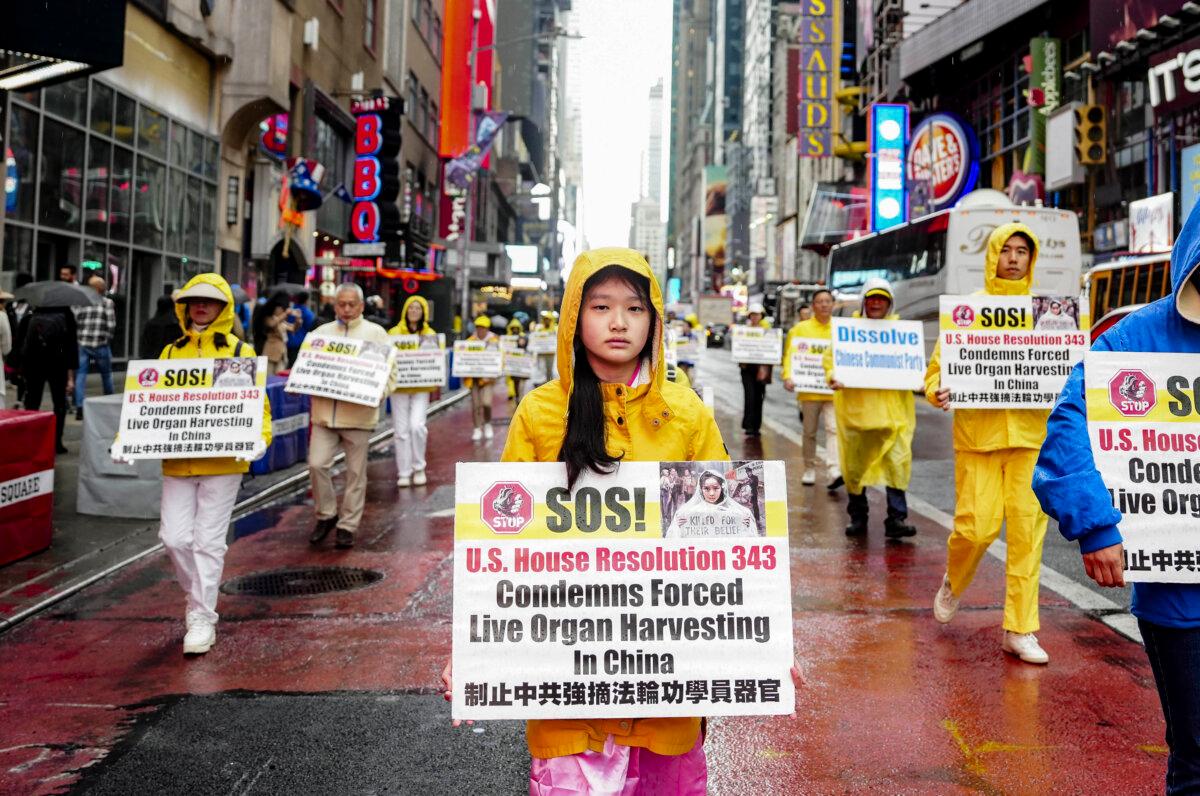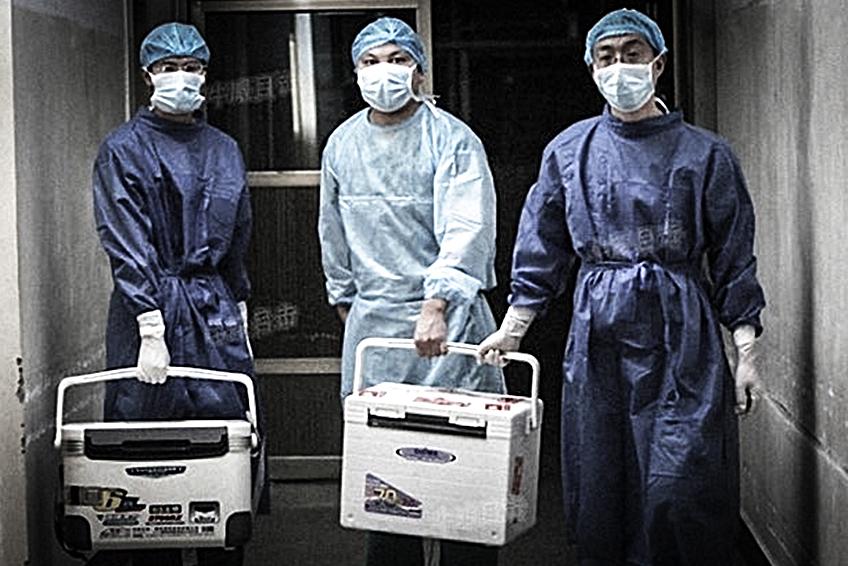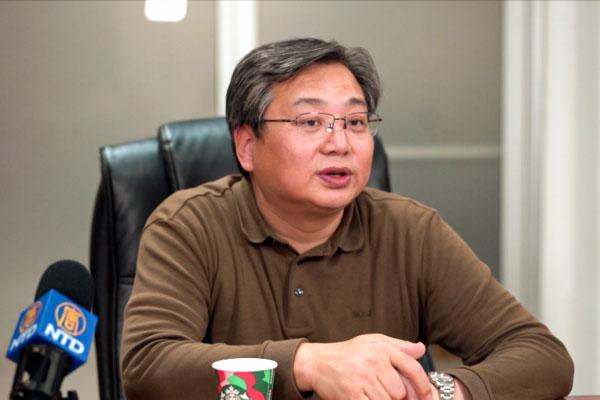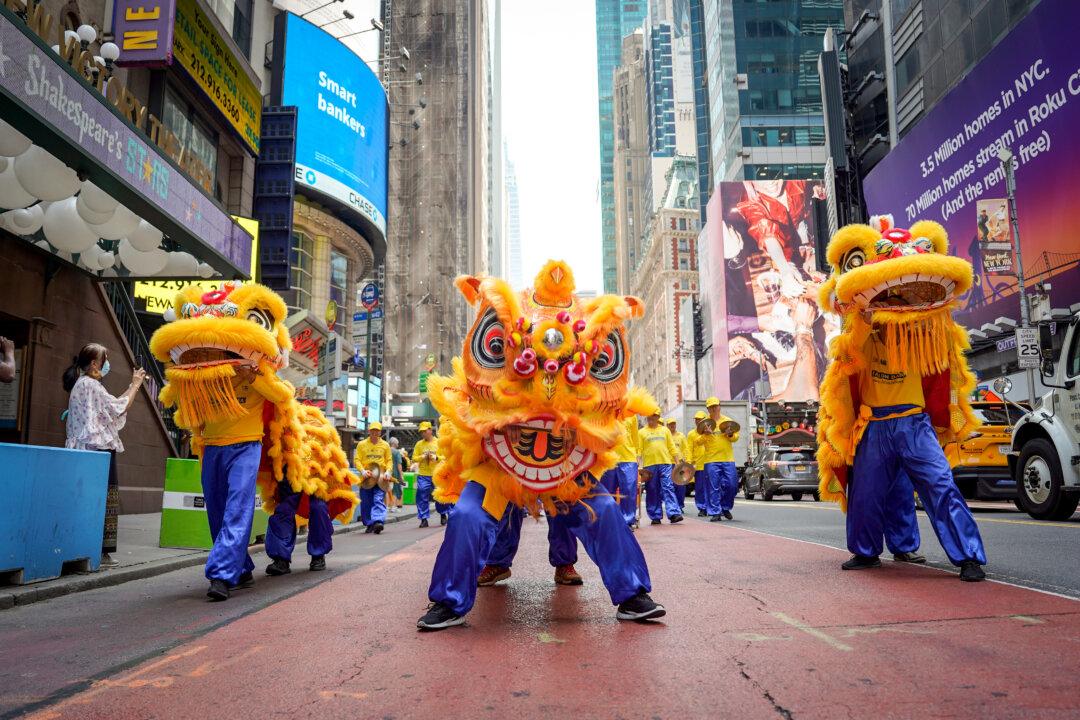A former Chinese official is sounding alarm over the communist regime’s forced organ harvesting based on his own experience in China.
Du Wen, a former executive director of the Legal Advisory Office of the Inner Mongolia Autonomous Region Government, was wrongfully imprisoned by the Chinese Communist Party (CCP) for 12 years before going abroad and settling in Belgium in 2023.
During his time in prison, Du learned first-hand that death-row prisoners have their organs collected before they die. He also encountered wealthy inmates who described how easy it is to obtain a matching organ, suggesting that hospitals are sourcing the organs from living people.
“I used to say, ‘Where is the evidence?’ Those are evidence!” Du said of the organ transplant advertisements that were seen outside major hospitals in Beijing.
“Every single advertisement is evidence. Every phone call is evidence: organs are being openly bought and sold,” he told the Chinese edition of The Epoch Times on Dec. 16.
“[The ads say], ‘If your matching [organ] isn’t successful, just call this number, and we’ll match you.' As long as you pay enough, they’ll grab a live person, harvest the organs, and sell them to you,” Du said.
“They have an entire organizational system, with doctors and everything... This is large-scale organ harvesting from living people.”
Over the past two decades, the main victims of forced organ harvesting have been practitioners of Falun Gong, or Falun Dafa, an exercise meditation and spiritual practice based on the tenets of truthfulness, compassion, and forbearance.
3 Steps to the Truth
Regarding the nearly 20-year-long efforts by the Falun Gong community to call for an end to the CCP’s forced organ harvesting, Du said he experienced a three-stage process of understanding what has occurred.The first stage was disbelief.
“As a normal person, I didn’t believe it. Live organ harvesting? No matter what, I couldn’t believe it because this isn’t something a human being would do—it’s something only beasts would do,” he said.
“I had heard this story for a long time, [but I still] thought that Falun Gong practitioners were making it up.”

Death Row Prisoners
The second stage was believing that the CCP harvested organs from death row prisoners.Du spent six years in a detention center, during which he saw 32 individuals walk out of their cells after being sentenced to death. Sometimes, he helped these death row inmates write applications for organ donation.
One day, Du and a death row prisoner were scheduled for a hearing at the same time.
Du asked a court officer, “How is the death penalty carried out now? In the past, those sentenced to death by shooting had to pay for the bullets. I heard that now [death penalty] is done by injection. Do they have to pay for the injection?”
The court officer replied that the injection costs 2,800 yuan ($383.65), but now the death row inmate no longer needs to pay.
Du asked why. The officer replied that they just inject anesthesia and take the organs, and the person dies, so there is no need for injections anymore.
“That’s when I realized there really is such a thing as live organ harvesting,” said Du. “The police clearly told me, don’t think about the organ issue. [They’ll] take all your organs… and there’s no compensation for you. It’s like you’re just giving back to society.”
After Du was released from prison, he asked an old friend from the court system, who also told him that death row inmates no longer receive the injection.
Wealthy Inmates Who Had Transplants
That’s when Du reached the third stage of understanding—he finally believed the CCP was indeed involved in organ harvesting from Falun Gong practitioners.“I met some wealthy fellow inmates who had undergone organ transplants, mainly liver and kidney transplants. Some spent 3 million ($411,043) yuan, some spent 2 million ($274,029), and the cheapest was 900,000 yuan ($123,313).”
“The scale might far exceed what outsiders expect because just in one small section of our prison, so many people had liver and kidney transplants,” Du said.
“Where did these organs come from? How many were actually donated?” he asked.

The price difference of organs is due to the age difference of the organ sources, based on what Du learned after being discharged from prison.
“It’s very simple logic—Falun Gong practitioners’ organs are healthier because they don’t smoke or drink,” he said. “Another factor is age; it’s no good if the person is too young, children’s organs don’t work either. The best organs come from those aged between 16 and 22.”
“If a prisoner’s organ match is successful, regardless of whether their crime is light or serious, they are still sentenced to death,” he said.
Du, who also had experience in the media, said a lady told him that after an ovary sterilization surgery, she found that one of her kidneys was missing.
“She asked me if I could help. I said this should definitely be reported, and if not, I would contact the media. While discussing this, I asked her to prepare the hospital diagnosis and other materials, but then this person disappeared, and I could never find her again,” he recalled.
“This happened last year,” he said, just before he left China.






